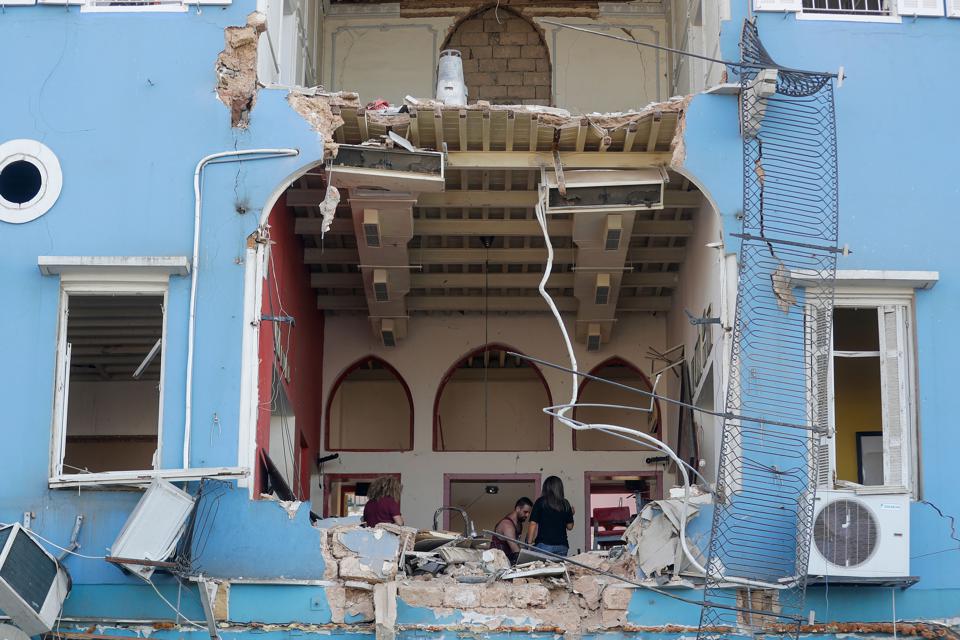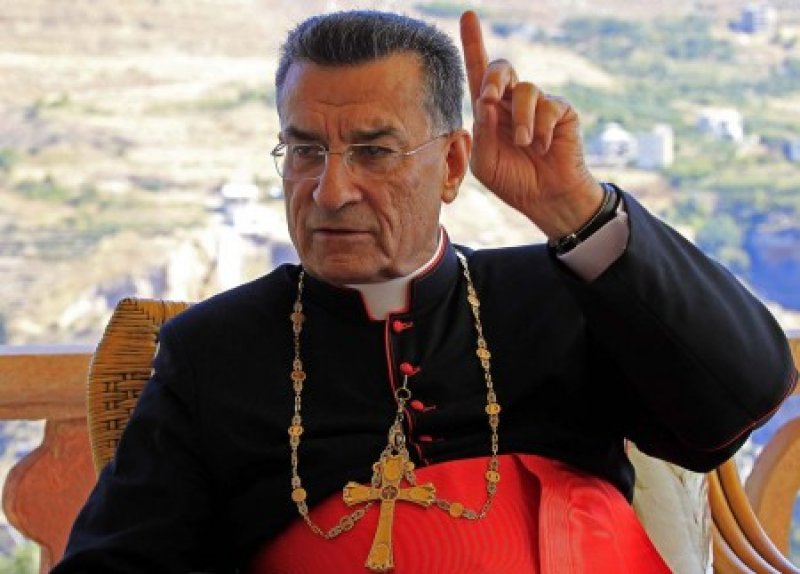During a prayer for those killed in the devastating blast at Beirut Port , Patriarch Rai said : We salute the souls of the victims of the bombing of the port of Beirut, including those in heaven , including the missing and the wounded on this earth, and we seek healing for them, including the afflicted, the homeless and the poor, and we tell them to combine their pain with the pain of Christ for the sake of the birth of the new Lebanon. All the Lebanese must return to their conscience.
We notice that brokers, and I would call them “crows”, are trying to storm Beirut’s historic homes and try to lure their owners to sell them . They are taking advantage of the explosion to seize these beautiful historic houses of unique character and architecture , and this is unfortunate. “

He continued, “No matter how severe the difficulties are, you, the owners of these houses, have preserved them. We thank the Lord for the international sympathy that exists today and the assistance that is coming, and there will be assistance to restore these homes, so we must be a little patient. You should not be too hasty or tempted by money to sell your lands and homes because the land is your culture, your civilization and your identity. “
He warned against conspiracies by some politicaL groups that are not in Lebanon’s interest , but did not elaborate
“Beirut is not for sale”
Several displaced Beirut residents are complaining that mysterious brokers are offering to buy their destroyed homes for a compelling sum of money.
Homes in Gemmayze, Mar Mikhael, Ashrafieh, Bourj Hammoud, and other districts near Beirut Port were completely destroyed by the shockwave of the explosion last week
But these are heritage houses of significant value, once repaired, due to their historic importance for Lebanon and the world community .
Brokers representing some politicians are reportedly telling residents of these old neighborhoods that the buildings are no longer safe to live in, and they need to be demolished, apparently for new projects.
The explosions at the port of Beirut did not only claim hundreds of lives and leave thousands injured, they also inflicted severe damage to some of Beirut’s most historic neighbourhoods, major museums, galleries and religious sites .
Following the devastating explosions , UNESCO mobilized leading cultural organizations and experts from Lebanon and abroad in an online meeting on 10 August to coordinate emergency and longer-term measures to safeguard the city’s severely damaged cultural heritage and rehabilitate its cultural life.
UNESCO, responding to the Directorate-General of Antiquities of Lebanon’s call for support, will lead the international mobilization for the recovery and reconstruction of Beirut’s culture and heritage, based on the Directorate-General’s technical needs assessment and the International Action Plan for Culture in Beirut, which UNESCO is currently developing with all its partners in Lebanon and abroad.
Dr Sarkis Khoury, Director-General of Antiquities at the Ministry of Culture of Lebanon, shared an initial assessment of damage to cultural institutions and heritage sites in the city. He noted that at least 8,000 buildings, many concentrated in the old districts of Gemmayzeh and Mar-Mikhaël, were affected. Among them are some 640 historic buildings, approximately 60 of which are at risk of collapse. He also spoke of the impact of the explosion on major museums, such as the National Museum of Beirut, the Sursock Museum and the Archaeological Museum of the American University of Beirut, as well as cultural spaces, galleries and religious sites.
Dr Sarkis Khoury stressed the need for urgent structural consolidation and waterproofing interventions to prevent further damage from approaching autumn rains. Emergency measures were also invoked to safeguard Beirut’s cultural life through the mobilization of artists, cultural professionals, artisans and custodians of traditional knowledge.
“The international community has sent a strong signal of support to Lebanon following this tragedy,” said Ernesto Ottone R., Assistant UNESCO Director-General for Culture. “UNESCO is committed to leading the response in the field of culture, which must form a key part of wider reconstruction and recovery efforts.”


Leave a Reply
You must be logged in to post a comment.